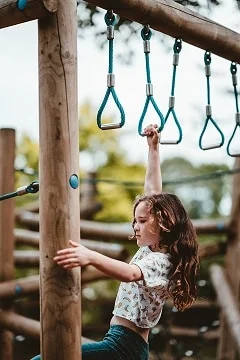Parents often ask us, how long should a Therapy session last? What is the difference between a 30-minute, 45-minute, or 60-minute therapy session? What about therapy sessions that are even longer?
- Transitioning in and out of the clinic
We, at our Symbiosis clinics, have been doing 60-minute therapy sessions (on an average). The main reason we do this is that many of our clients have a difficult time transitioning in and out of the clinic. If we are doing a 30-minute session, and the child has transitional difficulties, we may not get much time to work in the session.

- Child’s involvement in an activity and interruption
Sometimes a child gets very involved in an activity and wants to stay longer to finish it, which we’re not able to do in a 30-minute therapy session. And then, of course, if the activity has to be interrupted before they’re ready, they’re probably going to have another problematic transition time!
- Practice time and flexibility
We prefer the longer therapy sessions that allow a child time to transition and more time to spend in activities that they might want to stick to for a little longer. Shorter sessions do not give us much of the wiggle room we need when a child struggles in an area and may have to repeat it two or three times.
Our philosophy is that if we do more in longer session time, the child will take a shorter time period, in the long run, to show improvement and the child will also have the time to make better progress in each session.
For more questions about our therapy treatment sessions, please give us a call or email us at info@symbiosispediatrictherapy.com












